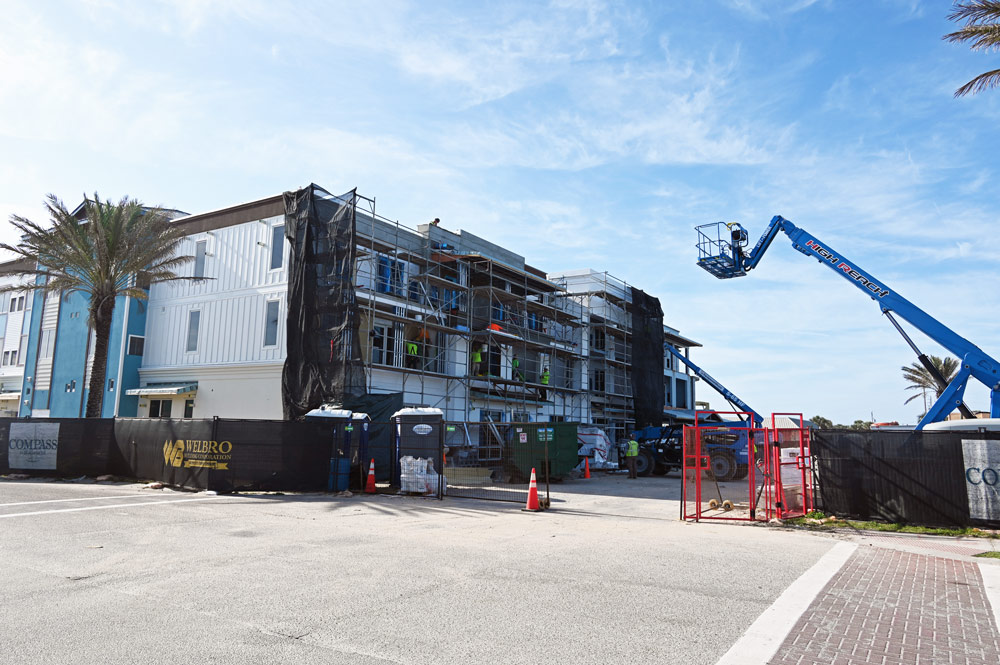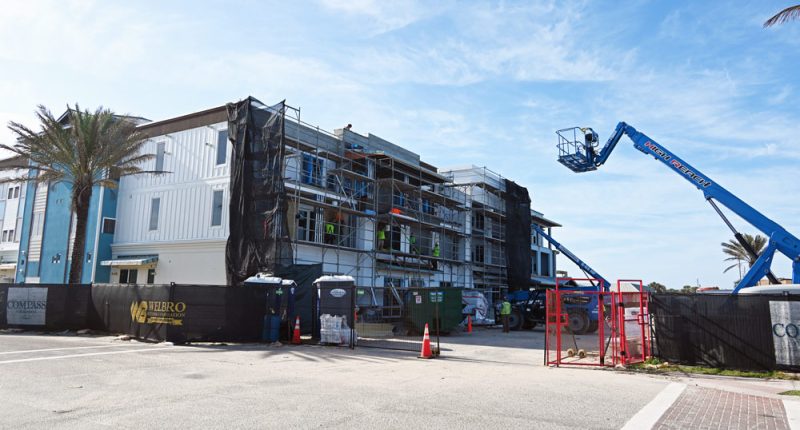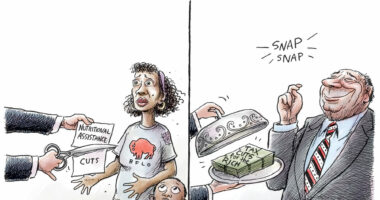
The Flagler Beach Planning Board embraced an idea proposed by downtown business owners to impose two-hour parking limits in a small area downtown that is typically overrun by people parking for hours at a time, sometimes all day, preventing the sort of turnover traffic that helps businesses thrive. The board is forwarding the proposal to the City Commission and urging it to consider it.
The two-hour zone would be in effect from 6 a.m. to 9 p.m., stretching along commercial zones between State Road 100 and South 3rd Street, between State Road A1A and South Daytona Avenue. Parking would remain free. It would not be policed by the city but by a private contractor, and signs would be paid for by some of the local businesses.
“It’s a great idea, and I think it’s something to get the ball rolling,” Planning Board Chair Suzie Johnston said, recommending that the idea be forwarded to the Flagler Beach City Commission for discussion at its upcoming strategic planning, or goal-setting, sessions.
Ted Barnhill, owner of Barnhill Cafe Bar and Grill, across the street from City Hall on 2nd Street, and of numerous properties in the city, including a small apartment complex, outlined the idea to the Planning Board earlier this month. At the time, 13 businesses had signed on to the proposal, which dovetails new paid-parking ideas the City Commission is developing.
“The context where there did seem to be support for the consideration is in line with this request that’s before you,” City Attorney Drew Smith told the planning board, the context being paid parking to “keep people moving, and so you don’t have a car that’s sitting in a parking spot for eight hours.”
Barnhill spoke for the coalition of downtown businesses. He said parking is already a challenge in the few blocks south of State Road 100 because of ongoing construction of the 100-room Margaritaville hotel. It’ll be more of a challenge when the hotel opens, bringing guests and employees and their cars.
“Without short-term parking, many potential customers cannot frequent businesses,” Barnhill said. “The businesses are damaged, the customers are inconvenienced, particularly if they’re older, if they’re handicapped. They just sometimes are unable to access the various opportunities here in our town that are actually growing pretty substantially, once the new hotel and the new pier open up. We believe that the short-term parking problems, absent some action to moderate those problems, will get significantly worse. They’re already terrible.”
He said the city has studied the problem for 20 years but done nothing. The commission has appointed advisory committees, hired consultants and generated reports, but little more. The two-hour proposal would not be costly, and could generate some revenue (through ticketing of violators).
Initially Johnston raised questions about the cost of signs and enforcement, which would be impossible by the city’s police officers.
“The reality of that is we as a city have no way of enforcing it,” Smith said. No tags can be run through databases outside of criminal investigations, “so it’s not like we can go down the street running tags.” (In fact, local law enforcement does just that at times with its license plate readers, but not to enforce parking rules.)
Dimitri Bourtzakis, owner of Beachside Gyro, the two-year-old restaurant on South 2nd Street, said he was willing to pay for signs. “It’s a deterrent for people to stay longer than two hours, thinking they might get a ticket,” he said. “So you don’t really have to police it, as long as the sign’s up there. People are pretty respectful.” Then he suggested that both he and Barnhill would put up the money, “if it’s the money that’s the problem.” (Barnhill confirmed he’d be willing to contribute.)
The several people who addressed the Planning Board, among them City Commissioner Rick Belhumeur (who will again hear the proposal at tonight’s meeting of the commission), were enthusiastic about it, at least as a spur to a more elaborate, citywide approach. “Maybe those businesses that are taking from the parking pool in a direct vicinity could pay somebody to police it. That would be my suggestion. And I think it’s a pretty good idea, actually.”
Barnhill supports contracting policing. The city would have to work out how to handle the revenue from ticketing, which could generate “substantial revenue,” Barnhill said. “Hopefully, the revenue doesn’t last long, because people get tired of paying 100 bucks and they just comply with the two-hour parking.”
Jackie Buckingham of the Flagler Tea Company, which has been at its South Central location for 10 years, has seen parking worsen over those years. “Now that some of the parking is closed down, there’s more people coming to the area. We see all-day parkers there. They’ll come down, either go to work, work all day, or they’re going to the beach all day. They don’t frequent the businesses.”
There are seven designated parking lots, she said. The city needs to direct all-pay parkers to those lots, which cost nothing.
A two-hour maximum would “turn over more revenue for sales tax in the city,” Buckingham said. “It would turn over more people coming to visit and visitors to learn about our city, get to enjoy our city, instead of riding around three or four times looking for a parking space, getting frustrated because they can’t find one, and leave and not even visit Flagler Beach anymore because there’s such a parking problem.”
Barbara Revels, the Planning Board’s newest member, noted that most employees who work at the downtown businesses park in front of the businesses where they work. “It seems to me,” Revels said, “that if the business community were to band together and locate an employee-only parking area and have transportation, whether they were golf carts or whatever, there is a ton of parking that’s being taken up by staff and employees that could be useful. Just as a start. I don’t know about the hotel and the employees for that hotel, what they’re going to do.”
Johnston recommended that Revels’s idea be part of the proposal sent to the commission.
“It’s a great idea, but we can’t make a decision for the commission,” Johnston said. “We are at the beginning of the year. So we know that strategic planning is coming up to bring this, something like this, at strategic planning, to see where they’re at with the paid parking. Until they can figure out paid parking, this might be a good short term solution, especially if someone’s going to cover the cost of signs.”











